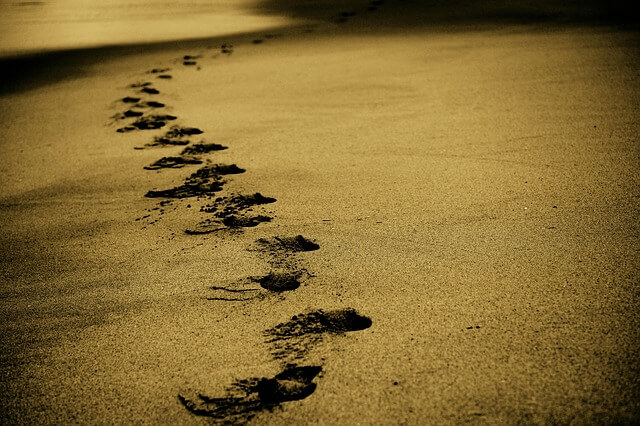
Whenever you sit down at your computer or grab your phone to chat with friends, search the internet, watch videos on YouTube, order something online, log in to websites, post, or comment on social media, you leave a trail of your activities. This trail is commonly known as a digital footprint. Apart from your online activities, any information posted about you is added to the digital footprint.
Now, suppose your friends, relatives, or colleagues borrow your phone or pc and decide to snoop around? Well, they would stumble upon your browsing history. They would know what type of videos you watch, the content you search, and the sites you visit. While most of that information is harmless, some can damage your reputation, and mess your career, and even compromise your security.
So, is there anything you can do about it? Yes, there are many techniques you can use to reduce your digital footprint. Here are some ways to protect and reduce your digital footprint (for other ideas you may want to check out Norton Security’s suggestions for protecting your digital):
Use incognito mode
Web browsers have a feature known as a private or incognito mode that limits the data collected and stored during the browsing session. When you browse the Internet using this mode, the browser does not store information about the keywords you used in your search and the pages you visited. Alternatively, the application forgets your data as soon as you finish the session and close the browser.
Unfortunately, using incognito mode does not protect your data when logging into some social sites such as Facebook as they still record your activity.
The Internet Patrol is completely free, and reader-supported. Your tips via CashApp, Venmo, or Paypal are appreciated! Receipts will come from ISIPP.
Reduce your social media interaction
Statistics show that about 70 percent of Americans use social sites such as Facebook and Twitter. Though these social sites assist people to interact, unwind, or get important updates, sharing too much information can work against you.
While social sites have privacy settings, these are not always enough to reduce your digital footprint because one of your friends can always let in snoopers via their profile. This would mean that the person who accessed your friend’s profile can access your content. To guard against this, consider selecting what you share with your family and friends. Also avoid playing games on Facebook and other social media platforms, as they are very often harvesting your data, and even your identity, while you are distracted by figuring out your pirate name, or what animal you most resemble.
Delete browsing history
Most websites store data in the cloud and locally in order to help in syncing your data with other devices. This means that if a person accesses one device which has your search history, they might be able to know your browsing history from other devices.
Normally, browsers or applications ranging from Firefox and Opera to YouTube offer the option of deleting your browsing history, so make sure you clear or delete your online activities regularly.
Keep in mind that if you use multiple devices, you may have to repeat some of these processes in order to make sure that no one peeking over your shoulder gets to know your online activities.
These simple but handy tips will help to protect your digital footprint and keep your private life away from prying eyes.
The Internet Patrol is completely free, and reader-supported. Your tips via CashApp, Venmo, or Paypal are appreciated! Receipts will come from ISIPP.










Yes!! yes!!
Why is this so hard for our selfless altruistic politicians to understand and cure — except that we tell them by our actions and / or lack there of — that we just really don’t care all that much.
Whereas, lobbyists do care — and prove it by how much that are willing to pay our selfless altruistic politicians — so we can all work together. :)
Dru